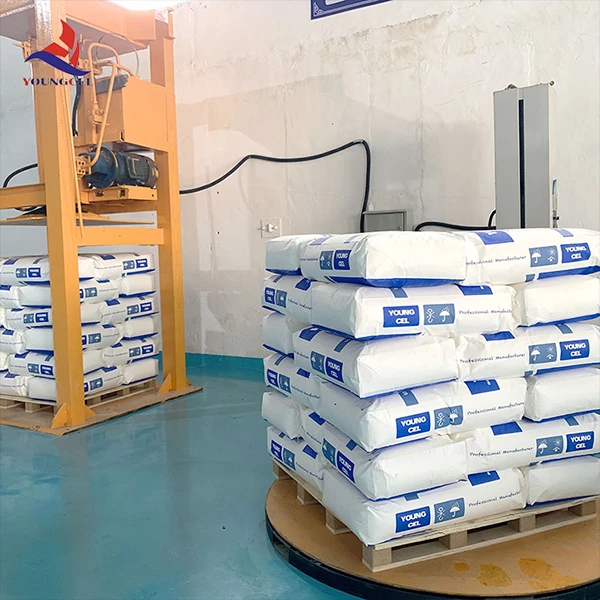The Role of Tylos in Thickeners An In-Depth Analysis
In the world of food science and industrial applications, thickeners play a crucial role in enhancing the texture, stability, and viscosity of various products. One of the most important substances in this domain is Tylos, chemically known as hydroxypropyl methylcellulose (HPMC). This versatile polymer has garnered significant attention across multiple sectors, particularly in food processing, pharmaceuticals, and construction. In this article, we will explore the pivotal role of Tylos in thickeners and its broad range of applications.
Understanding Tylos
Tylos, a white, odorless powder, is derived from natural cellulose and is known for its excellent ability to form gels and increase viscosity. It is produced by the controlled reaction of cellulose with propylene oxide and methyl chloride. The resultant polymer exhibits remarkable solubility in water, making it an invaluable ingredient in various formulations. Due to its non-toxic nature, Tylos is widely accepted in food and drug manufacturing processes.
Applications in Food Industry
In the food industry, Tylos is often used as a thickening agent, emulsifier, and stabilizer in a myriad of products. Its ability to form a gel-like consistency under varying temperatures and pH levels makes it an ideal choice for sauces, dressings, soups, and dairy products. When added to formulations, Tylos enhances mouthfeel and provides a pleasing texture that consumers find appealing.
Moreover, Tylos is instrumental in gluten-free and reduced-fat products. It mimics the properties of gluten, offering structure and elasticity to baked goods without the need for traditional flour. This feature is particularly beneficial for individuals with gluten intolerance and those seeking healthier dietary options.
Pharmaceutical and Cosmetic Uses
Beyond food, Tylos serves a critical function in the pharmaceutical industry. Its thickening properties contribute to the stability of liquid formulations, such as syrups and suspensions. Tylos helps maintain uniform distribution of active ingredients, ensuring that patients receive consistent dosages. Additionally, its biodegradable nature aligns with the growing demand for environmentally friendly products.
thicken tylos

In the cosmetic sector, Tylos is widely used in lotions, creams, and gels. Its excellent binding properties ensure that formulations remain stable and effective over extended periods. Moreover, it contributes to the sensory experience of applying products, providing a smooth and luxurious feel on the skin.
Construction and Industrial Applications
Tylos also finds its place in construction materials. As an essential component of cement-based products, it enhances water retention and extends the workability of mortar and plaster. The use of Tylos in these applications ensures that constructions maintain their integrity over time and can withstand various environmental conditions.
In the realm of paints and coatings, Tylos acts as a thickening agent, providing optimal viscosity and preventing settling. This functionality is crucial for achieving even application and durability of the final product.
Advantages of Using Tylos
The advantages of Tylos as a thickening agent are manifold. First and foremost, it is easy to incorporate into various formulations, rendering it accessible for manufacturers. Its neutral taste and odor ensure that it does not interfere with the flavor profiles of food products. Additionally, Tylos is highly versatile, able to perform effectively across diverse temperature ranges and pH levels.
Furthermore, Tylos is considered safe for consumption and use in topical products, having been approved by various health authorities, including the FDA. Its use in both food and pharmaceutical applications underscores its importance as a reliable thickening solution.
Conclusion
In summary, Tylos stands out as a crucial ingredient in the realm of thickeners, owing to its exceptional properties and versatility. From enhancing the texture of food products to stabilizing pharmaceutical formulations and contributing to effective construction materials, its applications are vast and varied. The ongoing advancements in food technology and material sciences may further expand the utility of Tylos in the future, solidifying its status as an indispensable component across multiple industries. As consumers increasingly demand quality and functionality in the products they choose, Tylos will undoubtedly continue to play a significant role in delivering these expectations.
-
Rdp that The Revolutionary Polymer Powder Transforming Modern Construction MaterialsNewsAug.11,2025
-
Hpmc Powder that Versatile Additive for Detergents and Personal CareNewsAug.11,2025
-
Hpmc Hydroxypropyl Methylcellulose that Essential Building Material Additive from Shijiazhuang Gaocheng YongfengNewsAug.11,2025
-
Hydroxypropyl Methyl Cellulos Hpmc that Essential for Construction ApplicationsNewsAug.11,2025
-
Mhec Powder that Revolutionizing Construction Chemistry with Cellulose Ether SolutionsNewsAug.11,2025
-
Industri Hpmc that The Global Backbone of Advanced ConstructionNewsAug.11,2025




